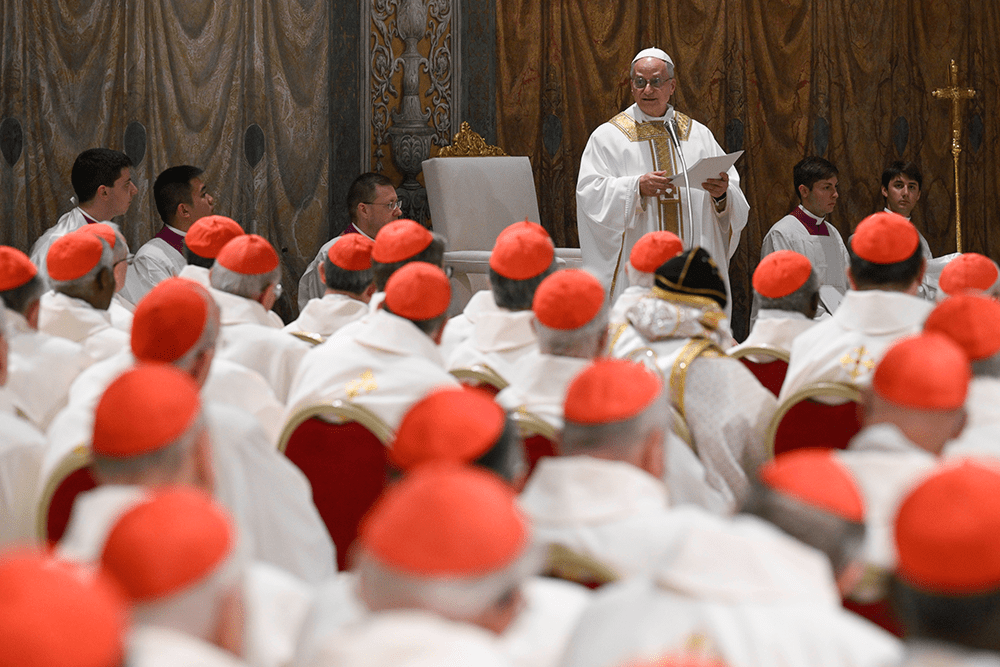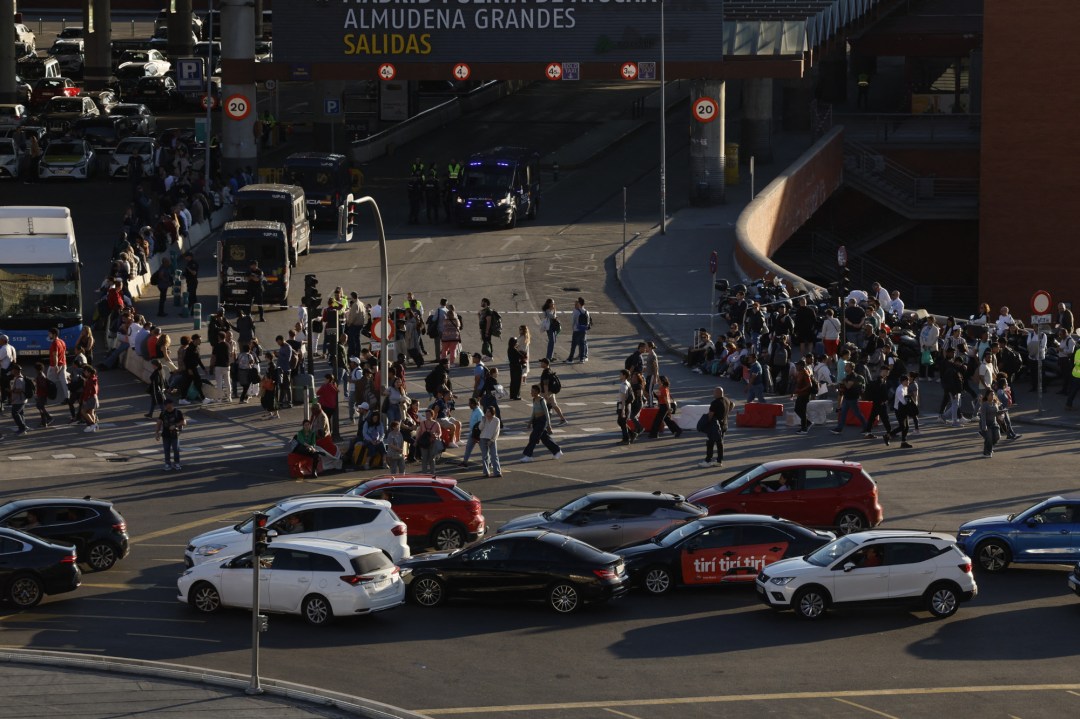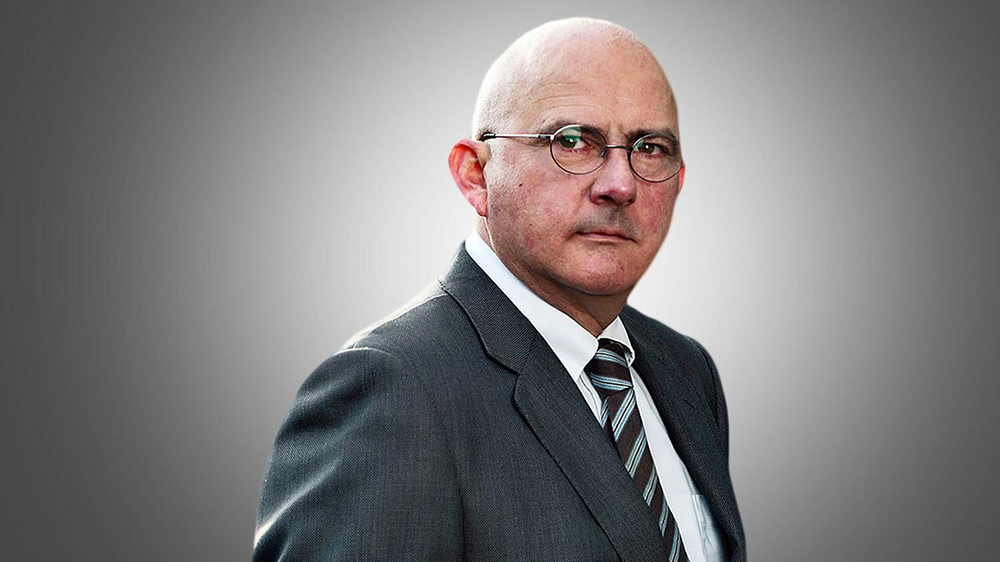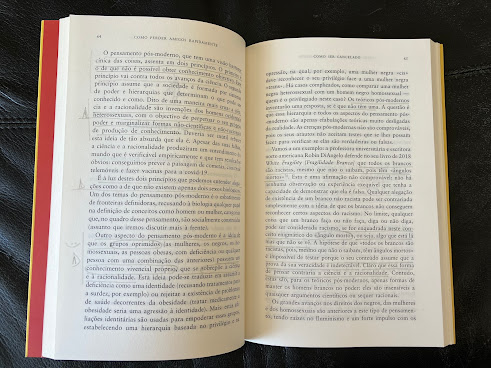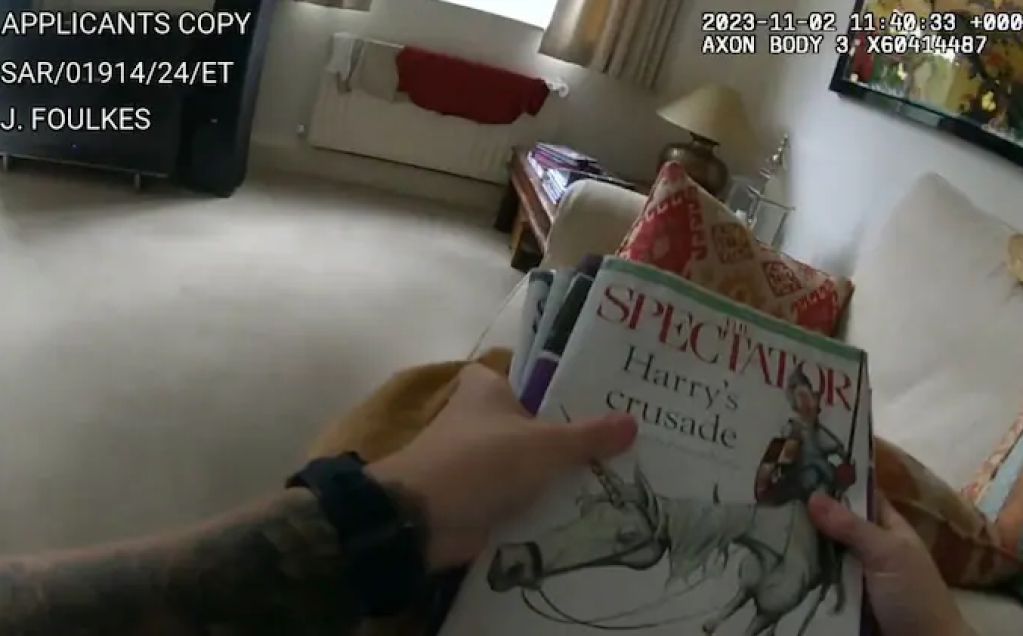(personal underlines)
The BBC’s war on the SAS

The SAS is under fire, not from terrorists or insurgents, but from ill-informed commentators and our state broadcaster. Our Special Forces are globally respected, they have been a vital part of Britain’s national security capability for nearly 80 years and they run enormous risks so that we might all be kept safe. Nevertheless, an exercise in making sure that they, like all who serve the Crown, are held properly to account risks being used by the ignorant, the sensationalist and the malicious to undermine the regiment and weaken our security.
In 2022, the then defence secretary, Ben Wallace, set up an independent statutory inquiry under Lord Justice Haddon-Cave to investigate allegations of unlawful activity by SAS personnel deployed to Afghanistan. There were particular concerns over reports of the extra-judicial killing of individuals detained during high-risk compound assaults. The inquiry has also been asked to consider whether the investigations into these allegations by the Royal Military Police were disrupted by the chain of command as part of an institutional cover-up.
If the inquiry concludes that the allegations are substantiated, criminal cases could follow and the ramifications could extend beyond the fate of individuals. Some commentators are calling for the regiment to be disbanded. The fate of the UK’s entire Special Forces capability hangs in the balance.
The nature of the allegations which prompted Wallace to order the inquiry have, naturally, attracted media interest. Investigative journalists are working to uncover what they consider to be the hidden truth. The BBC’s Panorama team is leading the way, skilfully weaving a compelling story informed by ex-Special Forces sources and in-person interviews with witnesses in Afghanistan. On 12 May, the programme painted a deeply disturbing picture, not just of what may have happened on the ground in Afghanistan but of the nature of the SAS itself. It was depicted as a rogue force, not a team of highly professional soldiers.
A crucial part in the programme is footage from an end-of-tour video filmed by SAS soldiers in Iraq, accompanied by text showing Enemy Killed in Action (EKIA) statistics: ‘Six months. Detained – 424. Enemies killed – 19.’ These figures were presented as evidence of a dangerous bloodlust in the SAS, a bloodlust endorsed by the chain of command and a ‘kill first, ask questions later’ culture.
One former SAS soldier interprets these stats not as a tally but a target, one driving bad behaviour. ‘It’s a ridiculous metric,’ he tells the BBC. ‘This is just a bad incentive. It’s always going to lead to bad behaviour.’
Viewers were invited to speculate that the culture apparently demonstrated by the unit in Iraq informed what is alleged to have happened in Afghanistan a few years later. The narrator sets up that expectation: ‘They were already keeping a kill tally.’
The programme’s sensationalist conclusion – designed, no doubt, to stick in the minds of those working on the Haddon-Cave inquiry – is that the SAS is rotten to its core, disconnected from the values of today’s Britain and in need of a complete overhaul. An awful conclusion, if it can be justified.
But can it? In today’s world accusations and suggestions merge, mutate and multiply, influencing and directing opinions at astonishing speed. The concerns raised by the BBC and others have so far been left unanswered by the chain of command. Into that vacuum come demands that something must be done – and that can very quickly lead to unwise policy-making. Structures and operational principles that took years to build can be dismantled in haste, at unknown future cost.
That is why there needs to be clarity. The omertà traditionally observed by former officers isn’t going to cut it any more. Silence adds existential risk to a vital part of our national security architecture, something our enemies encourage and celebrate.

Perhaps I can help a little by providing some context on this video and what it really says about our Special Forces soldiers. As the Commanding Officer of the 22nd Special Air Service Regiment (22 SAS) in 2006, I requested videos such as the one shown in Panaroma to be made, not for gratuitous reasons, but to help with information-sharing.
The videos were shown at the end-of-year ‘cross brief’ to the SAS and the wider UK Special Forces Group. They were used in a presentation that highlighted what went right and what went wrong, before they were passed on to a group of professionals to analyse the key lessons from the most recent operational tour. They were made to make soldiers’ lives safer, and indeed to reduce the risk to others. Panorama presents the footage as a sort of snuff movie, divorcing it from its real purpose as a coaching tool for men who would be locked in close combat with the most dangerous terrorists in Iraq.
As for those apparently damning EKIA statistics, they actually reflect the opposite of what the BBC and others have sought to insinuate. They show that of the 446 enemies prevented from committing further terrorist offences the majority were detained without loss of life and only 19 – less than 4 per cent – were killed.
That’s an extraordinarily low figure when you consider what SAS soldiers were doing. They were trying to detain and disarm ruthless killers in the closest of close combat. On average, SAS soldiers were required to conduct raids every night and always into what were called ‘non-permissive urban areas’ of Iraq (military jargon for places that coalition forces did not control and where insurgent counterattacks against raiding forces were common). In almost every raid, SAS soldiers would have to fight to clear and hold their objectives. In such circumstances, a kill rate below 4 per cent shows restraint.
The SAS was there in the first place because a decision had been taken not to subject the buildings in which the terrorists were based to bombing from the air. Aerial bombardment of each target was an approved alternative when fighting Abu Musab al-Zarqawi’s al Qaeda In Iraq (AQ-I), but given that Al-Zarqawi’s operatives typically lodged with families in Sunni residential areas, civilian casualties would have been horrendous.
Instead, the SAS soldiers took extreme risks, facing violent and well-prepared opposition to capture these terrorists and hand them on to Iraqi justice and detention. It was a deliberate and careful approach that enabled the American-British Special Operations force to understand, track and ultimately crush the AQ-I’s murderous network. It required precision, intelligence, self-control, skill and relentless forward motion in the face of immense danger – the very opposite of the hot-blooded, murderous drama depicted by poorly informed outsiders.
At the start of 2005, approximately 100 vehicle-borne suicide bombs were being detonated a month in Baghdad by AQ-I, and thousands of Shia Muslims were being slaughtered by assassination gangs. But by the end of 2007, after the combined US and SAS effort directed against AQ-I, Al–Zarqawi, its head-hacking Jordanian leader, was dead. The number of suicide bombs had dropped to a single detonation per month, and the Sunni population of central Iraq was supporting the coalition efforts in eradicating AQ-I from their midst. It was a remarkable outcome justifiably celebrated by military and political leaders at the time.
This impressive result was delivered not by indiscriminate bombing or conventional divisional assaults through densely populated urban areas, or by bloodthirsty killers on the rampage. It was hard won by skilled Special Forces at a significant cost, as recorded with honour on the memorials in Hereford, Poole, Fort Bragg, Fort Benning and elsewhere.
There is a saying by Martin Luther King doing the rounds among former and current SAS men: ‘In the end we will remember not the words of our enemies, but the silence of our friends.’ While the Haddon-Cave inquiry is being conducted, it may be worth reflecting on how dangerous this world has become, and how much is owed to these quiet professionals who dare to enter the citadels of our enemies as the rest of us sleep easy at night. These valiant and special soldiers stand ready for you, and they are watching and listening.
